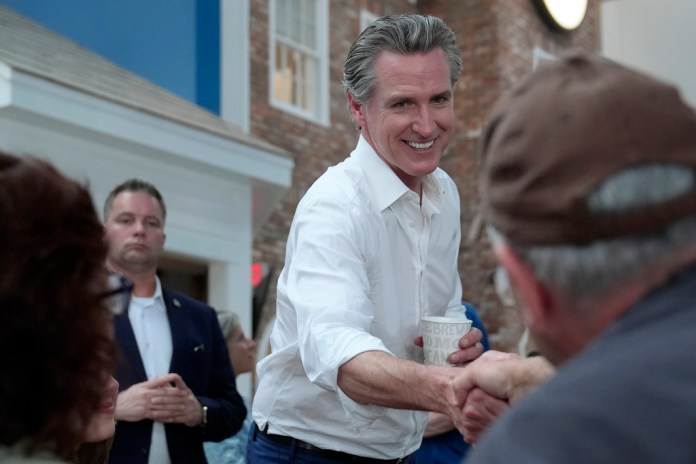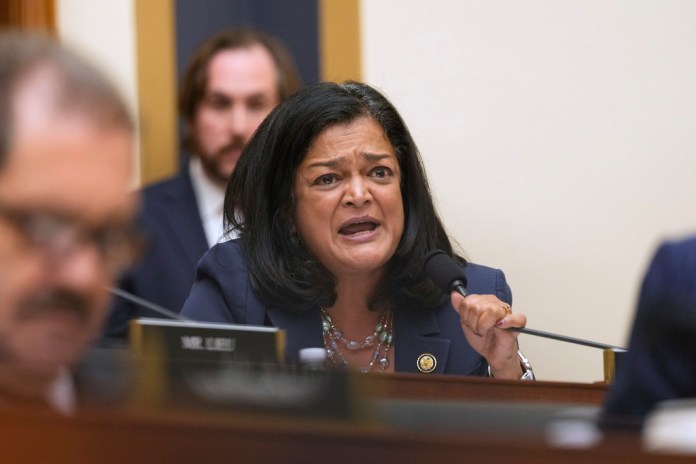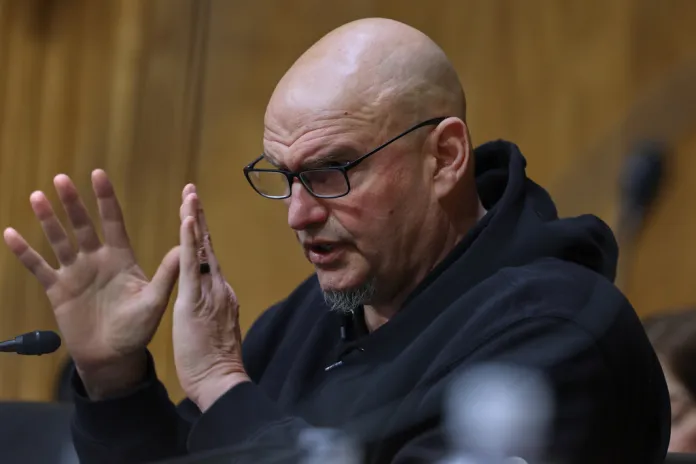Democrats call up GOP’s Obamacare playbook on Trump tax law
The article discusses how Democrats are adopting a political strategy similar to the Republicans’ approach against Obamacare to oppose the “One Big Stunning Bill Act,” recently passed and promoted by House Republicans ahead of the 2026 midterm elections. Early polling shows limited public support for the bill,which involves extending tax cuts,increasing border security spending,and implementing cuts to Medicaid and food stamps to offset costs. Democrats are launching a campaign warning that the bill would take healthcare away from vulnerable populations, with rhetoric emphasizing that “people will die” as a result.
This strategy mirrors the GOP’s successful messaging against the Affordable Care Act in 2010, which fueled a strong conservative backlash and helped Republicans regain the House. Democrats hope to mobilize voters by framing the current legislation as harmful, though key Medicaid cuts in the bill would not take effect until after the midterms, complicating immediate political attacks.
Republicans defend the bill as historic “America First” legislation and criticize Democrats for fearmongering. The political messaging battle is underway, with Democrats aiming for disciplined focus on healthcare issues, a strategy credited with their successes in 2018. However, challenges remain for Democrats to maintain a unified message through the upcoming election cycle.
Democrats’ strategy on the ‘big beautiful bill’ mirrors GOP’s Obamacare playbook
Democrats are looking to run the Republican Obamacare playbook and use the One Big Beautiful Bill Act as a political cudgel heading into the 2026 midterm elections.
Early polling on President Donald Trump’s signature legislative victory suggests a small fraction of adults support the bill signed into law on Friday. For those undecided about legislation, Democrats are launching a public relations campaign centered on the message that Trump and the GOP are trying to take away healthcare from those who need it the most.
DEMOCRATS AND REPUBLICANS RACE TO DEFINE THE ‘BIG, BEAUTIFUL BILL’ TO VOTERS
“People will die,” Rep. Hakeem Jeffries (D-NY) said in his record-breaking speech that lasted nearly nine hours on the House floor last week before final passage. “Tens of thousands, perhaps year after year after year, as a result of the Republican assault on the healthcare of the American people. I’m sad. I never thought I would be on the House floor saying this is a crime scene.”
The approach is not unlike the GOP campaign against the Affordable Care Act, also known as Obamacare, which was signed into law by former President Barack Obama in 2010. Fueled by the rise of the Tea Party and rage against Democratic lawmakers at heated town halls, activists rejected what they deemed as a government takeover of medicine and possible healthcare rationing, which became colloquially known as “death panels,” though no such board existed.
Democratic strategist Brad Bannon said Republicans were very effective in selling the message that Obamacare would mess with people’s healthcare. Public support of Obamacare declined. The bill cost the Democrats the House in the 2010 midterm elections, after backlash led to what Obama himself called a “shellacking.”
Democratic strategist Jon Reinish called the “big, beautiful bill” a “bookend” to 2010.
“Voters were reacting very negatively to a massive piece of transformative legislation,” Reinish told the Washington Examiner.
“Both of these bills had immediate and massive impact, and also extremely, extremely negative perceptions,” Reinish added, referring to Obamacare and the GOP’s tax megabill.
Sen. Thom Tillis (R-NC) sees the Obamacare comparison as well. As one of the most vulnerable GOP senators up for reelection, Tillis warned that the bill’s cuts to Medicaid would put more than 600,000 North Carolinians at risk of losing health insurance and spark an Obamacare-like political backlash.
He said Obama suffered politically when he broke his pledge that patients who liked their doctors could keep their doctors under Obamacare and warned that Republicans would suffer the same fate.
“What do I tell 663,000 people in two to three years when President Trump breaks his promise by pushing them off Medicaid because the funding is not there?” Tillis said.
Tillis did not vote for the bill and announced his retirement from the Senate rather than fend off a Trump-backed primary challenge.
Megabill’s changes are after the midterm elections. But that shouldn’t dissuade Democrats
The One Big Beautiful Bill Act extends the expiring 2017 tax cuts and adds additional breaks for tipped workers and seniors, while boosting border security measures by about $150 billion. To pay for the tax extension, the bill trims spending on food stamps and Medicaid healthcare for lower-income people.
Much of the spending cuts come from imposing work requirements on able-bodied adults without dependents and changing federal reimbursement rates for the Medicaid expansion population.
The changes to Medicaid, including effective dates for work requirements, do not take effect until Dec. 31, 2026 — almost two months after the midterm elections.
This is a win for Republicans, as Democrats will have a difficult time convincing midterm voters that people will lose health insurance, let alone die, because of the legislation.
But Republicans also ran into something similar in 2010, as many of the Affordable Care Act provisions did not go into effect right away, North Carolina Democratic strategist Doug Wilson told the Washington Examiner.
However, Wilson said, Republicans got around that by running with a simple message right out of the gate: that the government was trying to control people’s healthcare.
“That was their message, and they were able to pick up 1,000 state general assembly seats and [were] able to take back the House and the Senate and build a bench that is literally giving them candidates still to this day,” Wilson said.
“Democrats can do the same thing,” the strategist continued. “Although the bills’ tenets about Medicaid cuts may not go into effect right away, just the mere fact that it’s there, Democrats can run on that very similar to Republicans did in 2010.”
The “people will die” narrative is already gaining traction among rank-and-file Democrats. Rep. Sarah McBride (D-DE) railed against the GOP bill on the House floor last week, targeting each Republican member for being held accountable for voting in favor of the legislation.
“Do they even care? Every ‘yes’ vote shows very clearly that they don’t,” McBride said. “This bill is trickle-down cruelty. And people will die because of it.”
After the 2010 elections, Obama admitted political defeat, despite passing Obamacare and stabilizing the economy.
“I’ve got to take direct responsibility for the fact that we have not made as much progress as we need to make,” Obama said at the time.
However, Republicans’ attacks on Obamacare did eventually backfire. Voters began to feel the positive effects of Obamacare in time for Obama’s reelection in 2012, Reinish said. By 2018, Democrats learned how to effectively message on affordable healthcare, and Republicans’ attacks on Obamacare were beginning to sour with voters.
GOP strategist John Feehery said the Obamacare and “big, beautiful bill” fights are not quite the same, believing that the Obamacare attacks really stemmed from Obama’s personality and less from the content of the legislation.
“People really hated Obama, and ACA was the proxy by which to hate him,” Feehery told the Washington Examiner. “I guess you could say that the Left hates Trump like the Right hated Obama, but I don’t think OBBB translates into [the] same thing as ACA.”
“Especially because most the cuts happen at the state level and most of them don’t happen until after the next election, if they happen at all,” Feehery added.
Republicans and Democrats begin messaging war
Republicans have praised the bill as the most impactful, “America First” legislation in history. House Speaker Mike Johnson (R-LA) has blasted Democrats for “fearmongering” and said they cannot “change the truth” during floor remarks last week.
“I tell you what Ronald Reagan used to remind us, you can always trust the American people, and we do trust the American people, and they can discern the difference,” Johnson said last week. “What they saw on display here today is that Democrats deliver performances and Republicans deliver results.”
Republicans were racing against the clock to pass the legislation, something Reinish said Obama and his White House did not do back in 2010. Instead, the former administration dragged the process out to get Senate holdouts on board. He thinks that may have contributed to the initial blowback for Obamacare, as it gave Republicans more time and ammunition to hammer the administration.
But the GOP’s quick, self-imposed deadline of Friday, in turn, gave Democrats some additional ammunition, mirroring a similar attempt from former Speaker Nancy Pelosi (D-CA) in which Democrats were trying to get Obamacare over the finish line in 2010.
Republicans have also cemented Pelosi’s infamous line, “We have to pass the bill so you can find out what’s in it.” Democrats took a page out of that playbook, blasting several Republicans who announced after the bill passed the House the first time that they did not know about some sections in the legislation.
Democrats also spent much of last week railing against Republican leadership for trying to push the legislation over the finish line in the “dead of night.” The House worked through Wednesday night and well into Thursday afternoon, passing the bill at around 2:30 p.m.
The real test for Democrats, Reinish and Bannon say, is whether the party can exercise “message discipline.”
“You can’t react to everything that happens along the way and build a campaign around it,” Bannon said.
‘BEAUTIFUL’ BILL 2.0? HOUSE HOLDOUTS HINT AT WHY THEY CHANGED THEIR VOTES
Reinish said the Democrats of 2025 should take notes from the Democrats of 2018, where they experienced victory by “laser focusing on healthcare.” But that means the party needs to stay on task for the next 15 months, something Democrats have been unable to do since their losses in the 2024 election caused them to engage in serious rebranding efforts.
“Can Democrats remain on message for that long? … We know that [healthcare] is a good one for Democrats,” Reinish said. “Hopefully, the party gets it together enough to sustain that messaging and message discipline between now and the midterms.”
" Conservative News Daily does not always share or support the views and opinions expressed here; they are just those of the writer."




